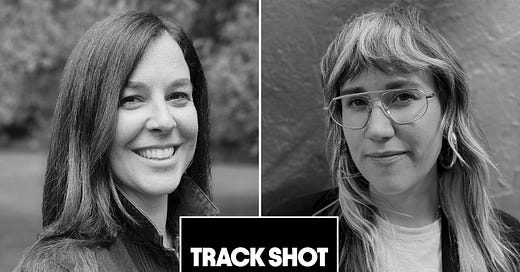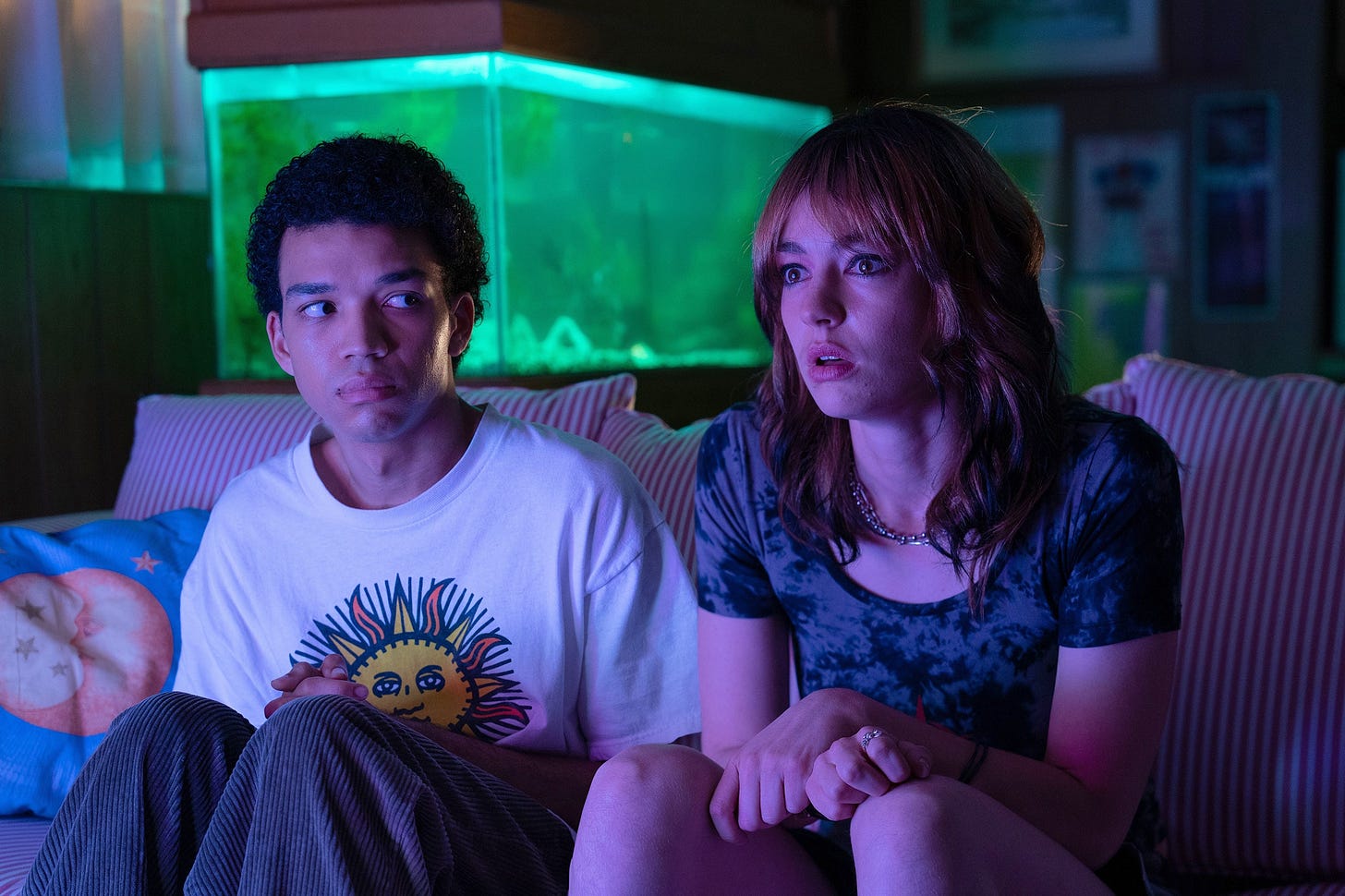Track Shot PR on the Art of Advocating
Laura Sok and Kate McEdwards on what resonates with audiences and critics, how to approach the lead-up to a festival, and the impact of a few headlines.
Hello! Welcome to Nothing Bogus, an Indie Film Listings+ newsletter. The + is commentary, interviews, dispatches, tutorials, and other groovy stuff. I’m going to start with the +. If you subscribed for the listings and only the listings, scroll as fast as you can to the bottom of this email. If you came for the +, no scrolling necessary :)
About a year ago, Laura Sok and Kate McEdwards launched TRACK SHOT. They’d both been working in film PR for over a decade, and over that time, their various roles at companies like Oscilloscope, Cinetic, and IFC Films had given them a wide angle view of distribution. “When you work on distribution, especially at Oscilloscope or IFC Films or a place like that, you learn about every aspect of the business because you touch every aspect of it,” Sok says.
The pair first began working together eight years ago, at Cinetic, and then spent another five years together at IFC Films, before setting up their own shop. “We worked together really well, so we had a conversation where we said, ‘Why can't we do this by ourselves? Let's work on the movies we want to work on,’" Sok says, adding that the goal was “to bring what we've learned at various places together to our agency to provide a broader service besides straight PR to our clients.”
Practically, that meant collaborating more directly with filmmakers and producers on their films’ releases — “explaining how it works on the inside to them, and putting a lot of those puzzle pieces together,” says McEdwards. Over the past year, projects the company has worked with include Steven Soderbergh’s Command Z and Presence, Godfrey Reggio’s Once Within a Time, Eddie Alcazar’s Divinity, and Jane Schoenbrun’s I Saw the TV Glow. I spoke to Sok and McEdwards about the keys to a good release, the importance of stars, and trends around what resonates now.
What are the challenges you're most encountering on the part of the filmmakers?
Laura: People who want to make a movie figure out a way to make a movie. They get it done. Steven Soderbergh will say this all the time, "You have an iPhone, you can make a movie. So what are you waiting for? You just have to get it done." But let's look at the past six months. We're working on several films that have gone to Sundance and Cannes. And what's really challenging? Figuring out how to get there. It's tough to finance going to Sundance once you get in. And you start realizing there's not only travel costs, there's PR, sales, so many additional costs. And I think you have to go through the cycle once to really figure out everything you might not know. So that's where we like to help people. We come in and say, "Hey, let's talk through the process and what you should be expecting down the road." A lot of people don't think about the year after they've made their movie. How do I get into a festival? What happens after it premieres?
I'm curious what those conversations end up looking like and what you advise those people.
Kate: Sometimes a barrier to entry for filmmakers is finding the right community. I think being a part of your film community and having access to community institutional knowledge is really helpful. I'm seeing that a lot of the films that are having success in the way we value success come from people working with their friends and getting it done within their community.
But in terms of the process, at the beginning we exchange stories. I give some anecdotes about prior experiences. They tell me about how their experience has been up to that point, and then we start getting into the materials — putting together press notes, crafting the imagery that comes out. There's a practical strategy to how that comes out, and to navigating the festival world and making sure you're not giving too much and you're giving the right thing at the right time. But at the same time, being able to do that together is a great exercise — learning how to get on the same page as somebody.
Laura: If you haven't been to a festival before, I think a lot of people think, Oh, I'm going to invite people to go to my screenings at the festival, and all of this stuff is going to happen for me. And what we try to do is tell people that's not really how it works, especially if you're a new filmmaker. So much work happens before the festival. I think people are constantly surprised that you might screen the film early under embargo, or that you can tell the festival you're not sending them a poster, or whatever the case is. And we try to say, "Based on your film and what's happening, here's what we think is going to get you noticed out of the festival." We try to guide people the right way.
Kate: I think people are surprised that the majority of the work happens in advance of these festivals. If you haven't done it before and you're looking from the outside in, you're like, The film premiered and all these critics were at the premiere, and all this coverage just magically comes out. That often happens beforehand.
I'm curious why some films take off and some don't when the processes behind the release are the same.
Keep reading with a 7-day free trial
Subscribe to Nothing Bogus to keep reading this post and get 7 days of free access to the full post archives.






